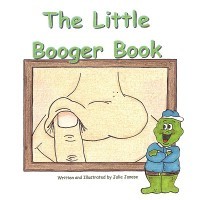| Hot Topics | |
|---|---|
Hard to make real japanese friends?
21 posts
• Page 1 of 1
Hard to make real japanese friends?
I never had a real japanese friend even though I was 'in country' 5 years. Maybe it was beacuase gaijin stink or perhaps it was because they were concerned about speaking english (even though japanese would have been fine for me) or was it that they don't know what aa real 'friend' is. I mean like the ones we hang out with in the weekends and shit. Most of the nippo's I saw met their 'friends' once or twice a year. Thats more like an aquantance if you ask me.
The law: Everything existing on the physical plane is an exteriorization of a thought, which must be balanced through the one who issued the thought. (Percival)
-

Maths Dude - Maezumo
- Posts: 366
- Joined: Thu Oct 14, 2004 7:54 am
- Location: World of Permanence
-

Samurai_Jerk - Maezumo
- Posts: 14387
- Joined: Mon Feb 09, 2004 7:11 am
- Location: Tokyo
I do think that Japanese value friendship differently than westerners. I can say I had a lot of good friends in Japan, but there is only one that I call whenever I go back.
-

Naniwan Kid - Maezumo
- Posts: 479
- Joined: Tue Jun 24, 2003 1:16 am
- Location: here and there
Samurai_Jerk wrote:Maybe it's your personality. :lol:
Maybe it's your breath.
ISTR an essay by a social anthropologist about attitudes about friendship, comparing US vs. Japanese attitudes. I only vaguely remember the content (other than that the attitudes were radically different) so I'll see if I can find it on my shelf and give you a synopsis.
-

Charles - Maezumo
- Posts: 4050
- Joined: Tue Oct 14, 2003 6:14 am
Charles wrote:ISTR an essay by a social anthropologist about attitudes about friendship, comparing US vs. Japanese attitudes. I only vaguely remember the content (other than that the attitudes were radically different) so I'll see if I can find it on my shelf and give you a synopsis.
I'd say Japanese attitudes towards friendship are pretty different from a lot of the rest of the world. I've heard gaijin from all over make the same basic comments as Westerners do about making friends in Japan. I made some good friends in Japan. The thing I never got used to was the idea of having to plan meetings so far in advanced. Japanese people are the only folks I've met that you can't just call up on Friday night and say lets go drinking. They usually need a couple of week's notice.
-

Samurai_Jerk - Maezumo
- Posts: 14387
- Joined: Mon Feb 09, 2004 7:11 am
- Location: Tokyo
Samurai_Jerk wrote:Japanese people are the only folks I've met that you can't just call up on Friday night and say lets go drinking. They usually need a couple of week's notice.
Ain't that the truth. And you usually can't use sarcasm as humor around them because they have a habit of taking such comments literally or personally.
I also got cockblocked more by Japanese dudes than Western dudes in pick-up situations. Other friends of mine have seen that pattern as well.
YBF is as ageless as time itself.--Cranky Bastard, 7/23/08
FG is my WaiWai--baka tono 6/26/08
There is no such category as "low" when classifying your basic Asian Beaver. There is only excellent and magnifico!--Greji, 1/7/06
FG is my WaiWai--baka tono 6/26/08
There is no such category as "low" when classifying your basic Asian Beaver. There is only excellent and magnifico!--Greji, 1/7/06
-

kamome - Posts: 5558
- Joined: Tue Apr 02, 2002 11:50 am
- Location: "Riding the hardhat into tuna town"
kamome wrote:...And you usually can't use sarcasm as humor around them because they have a habit of taking such comments literally or personally.
Yep, that's one of my crackpot theories, the Japanese have no sense of sarcasm or irony. I've worked with exchange students from Japan, many of them were English Lit majors who presumably read classic American satirists like Mark Twain, and they just do not understand the elements of satire or irony, even in the classics they read. Sarcasm is generally perceived as deliberate cruelty. Even minor self-effacing sarcasm (i.e. "oh, I'm such an idiot") is not taken as meant, I have never determined just how they feel about it, they won't talk about it, all I can observe is that bugged-out eyes look.
Anyway, I still haven't found that essay on US/Japanese friendships, but I am vaguely recalling some elements. IIRC, one assertion was that Japanese don't undertake friendships lightly, since that places you in their "in-group" and thus they are now burdened by a relationship that might include taking responsibility for your actions. This is particularly hard on international friendships because the nihonjin are never quite sure if you behave according to their social norms, you're a gaijin after all.
There was a lot of great stuff in this essay, I'll have to dig it up. But it will take a while because I have a cold and I'm really sick.
-

Charles - Maezumo
- Posts: 4050
- Joined: Tue Oct 14, 2003 6:14 am
pretty much the social situation here in new york - it takes alot of planning to get together for anything.
[quote=""Samurai_Jerk The thing I never got used to was the idea of having to plan meetings so far in advanced. Japanese people are the only folks I've met that you can't just call up on Friday night and say lets go drinking. They usually need a couple of week's notice.[/quote"]
[quote=""Samurai_Jerk The thing I never got used to was the idea of having to plan meetings so far in advanced. Japanese people are the only folks I've met that you can't just call up on Friday night and say lets go drinking. They usually need a couple of week's notice.[/quote"]
-

prolly - Maezumo
- Posts: 303
- Joined: Mon Sep 20, 2004 1:14 pm
-

Samurai_Jerk - Maezumo
- Posts: 14387
- Joined: Mon Feb 09, 2004 7:11 am
- Location: Tokyo
-

Big Booger - Posts: 4150
- Joined: Sat Jan 11, 2003 8:56 am
- Location: A giant bugger hole
kamome wrote:And you usually can't use sarcasm as humor around them because they have a habit of taking such comments literally or personally.
Older women in Japan definitely seem to "get irony". I think they might develop it as a way to keep themselves amused while dealing with the family.
-

Mulboyne - Posts: 18608
- Joined: Thu May 06, 2004 1:39 pm
- Location: London
I've found it difficult to make friends with Japanese guys for a number of reasons. First, there are the language leeches who just want to be your friend to practice English. I knock those people back right away nowadays, now that my Japanese is semi-proficient. But on top of that, J-guys normally think you're either a super-cool icon of masculinity and they kiss your arse, or they take the piss out of you because they feel threatened. From Japanese guys I've always sensed a kind of feeling that there is an unfair discrepancy between us...like us gaijin guys are adored everywhere we go and can get any woman we want, while they don't stand a chance. Of course that's very close to being bullshit, but that's how they see it.
I normally don't get cockblocked by Japanese guys. Actually, they're normally the arse-kissing variety who try to set me up with one of their female friends, only to feel jealous about it later.
I normally don't get cockblocked by Japanese guys. Actually, they're normally the arse-kissing variety who try to set me up with one of their female friends, only to feel jealous about it later.
*Terrorizing the dancefloor*
-

nigerian_nampa - Maezumo
- Posts: 28
- Joined: Sun Oct 24, 2004 10:15 pm
- Location: GasPanic Shibuya and Sam and Dave 2
kamome wrote:I also got cockblocked more by Japanese dudes than Western dudes in pick-up situations. Other friends of mine have seen that pattern as well.
Fuckin tell me about it. Japanese guys don't have any game either, they'll just straight out start rubbing on a girl.
-

ibiza - Maezumo
- Posts: 75
- Joined: Fri Nov 28, 2003 1:05 pm
nigerian_nampa wrote:From Japanese guys I've always sensed a kind of feeling that there is an unfair discrepancy between us...
That's sort of what I get, just minus the women aspect. But, they don't even try to make friends. I can almost see the mental message running through their head, "Oh man, this guy is a gaijin, he is nothing like me." Of course everyone has their own pre-set opinions of foreigners. . .but it's like they don't even try to get to know you or anything, they just shut down and give up.
Then again, when you look at it in the big picture, this apathetic way of approaching things is typical, isn't it?
-

Molokidan - Posts: 240
- Joined: Thu Nov 20, 2003 2:14 pm
Re: Hard to make real japanese friends?
Maths Dude wrote:I never had a real japanese friend even though I was 'in country' 5 years. .
Why can't we be friends?TUFTS DAILY / November 08, 2004
Allison Roeser | My Woman From Tokyo
By Allison Roeser]
Some American friends and I were enjoying lunch outside in the courtyard at my university, struggling through a Japanglish conversation with a Japanese friend of ours, when one of us told him that he was a very good friend to us.
His face registered an immediate expression of confusion and skepticism, and he let out one of those awkward-sounding laughs. "You all think you are my friend? You can't be my friend," he said....
<snip>
"Everything is so under-wraps, so hidden here. Don't you ever get sick of being so secretive about some things in your life?" I asked him.
"No, never. It's how it should be. Relationships are personal. They are private and no one else's business," he said. "You should not change your normal life around just because you have a girlfriend or boyfriend."
_________
FUCK THE 2020 OLYMPICS!
FUCK THE 2020 OLYMPICS!
-

Taro Toporific - Posts: 10021532
- Images: 0
- Joined: Tue Sep 10, 2002 2:02 pm
Re: Hard to make real japanese friends?
"No, never. It's how it should be. Relationships are personal. They are private and no one else's business," he said. "You should not change your normal life around just because you have a girlfriend or boyfriend."
I never really thought that there was a calculated reason for this particular secrecy. I always assumed it was just another aspect of the paranoia I frequently sense in the Japanese.
-

Captain Japan - Maezumo
- Posts: 2537
- Images: 0
- Joined: Wed Nov 06, 2002 10:19 am
- Location: Fishin' in the Meguro River
nigerian_nampa wrote:I've found it difficult to make friends with Japanese guys for a number of reasons. First, there are the language leeches who just want to be your friend to practice English.
If I had a beer for every Japanese person trying just to practice their English out on me.....I could pass one out to every member of this forum :P
Seriously, I've only been here for a little over 2 years now, and I've heard just about everything from Japanese people.
"It's my dream to live overseas some day..." <-- Is that why you're talking to me?
"I need to practice my English.." <-- I'm not an English teacher.
"I only date foreigners..." <-- What's wrong with Japanese guys?
I hear you guys about serious Japanese friends though. I've got a couple here in Japan that I can call up and usually meet at a bar or something, but they've all had at least 4 years of education in a Western country. My best friend here, I met back in the States. Nowadays on a Friday night if I want to go drinking, I'll just ask around at the office 'till I find somebody, or call up some of the other foreigners I know around Tokyo. It's a lot easier to go drinking with the guys at the office, cause we get off at the same time, and plus, I work in an area with a lot of izakaya's and bars.
I think friendship over here takes longer to develop, and if you ask most Japanese people, most of their friends are from school days, where they spent a lot of time together, either in club activities or what not. It does kind of get depressing when you figure out that many Japanese people only talk to you to speak English, but if you play your cards right, you can work some free beers out of it at least.
- Manbiki Boy
- Maezumo
- Posts: 6
- Joined: Fri Nov 05, 2004 5:13 pm
- Location: Runnin' From the man
That's just it. It takes time to develop friendships and you will form friendships with those which you spend a lot of time with. I still consider my best friendships formed back in my school days and now having moved around wuite a bit my friendships tend to come from work. In Japan I formed relationships with colleagues who hung out in the smoking area and at bars. Other associates of mine were "healthier" and enjoyed a bit of footy... so they had lots of international friends and would get together with them every week in a "club activity".
This thread is silly. If you wanted to make a deep relationship... I'm guessing an open one where you can confide and have stirring conversations... then you should have been the one to initiate contact in a social gathering appealing to your lifestyle. Me? I liked drinking and playing poker. Made some good friends that way. Won some money. Lost some money. Had some fun. But I wasn't looking for some silly sensitive heart to heart talk about relationship troubles or strange emmisions at night... maybe it's your choice of topics that turn people off (talking about differences between cultures is not interesting to them as it wouldn't be if you heard it all the time in your home country).
My JGF has loads of deep relationships back in Japan and they talk constantly on the phone, so any theory that Japanese don't form decent relationships is crap. She has also managed to make friends quickly here in Canada with both Canadian, Japanese, and Korean... but they all came from her work where she spends a lot of time. Why can't you do the same?
This thread is silly. If you wanted to make a deep relationship... I'm guessing an open one where you can confide and have stirring conversations... then you should have been the one to initiate contact in a social gathering appealing to your lifestyle. Me? I liked drinking and playing poker. Made some good friends that way. Won some money. Lost some money. Had some fun. But I wasn't looking for some silly sensitive heart to heart talk about relationship troubles or strange emmisions at night... maybe it's your choice of topics that turn people off (talking about differences between cultures is not interesting to them as it wouldn't be if you heard it all the time in your home country).
My JGF has loads of deep relationships back in Japan and they talk constantly on the phone, so any theory that Japanese don't form decent relationships is crap. She has also managed to make friends quickly here in Canada with both Canadian, Japanese, and Korean... but they all came from her work where she spends a lot of time. Why can't you do the same?
-

Watcher - Maezumo
- Posts: 204
- Joined: Sun Oct 26, 2003 8:40 pm
- Location: Sneaking up behind you
Yomiuri: Is it OK if I call you my friend?
Some months ago I was talking to-- I was about to write that I was talking to a friend, but let's put that designation aside for the moment. I was talking to a Japanese woman I know whom I'll call Hirose-san. We had been at graduate school together and had become friendly, I think it's safe to say, in the course of all the grueling reading assignments, papers, tests and discussions. I hadn't ever really thought about our relationship, but I liked Hirose-san and we had a meaningful experience in common.
When I spoke to Hirose-san on this occasion she mentioned that she had met another person recently and while talking to this new acquaintance my name had come up in conversation. Hirose-san paused delicately here and I wondered a bit apprehensively what she was about to say. Then she said: "When your name came up I said you were a friend of mine. I hope you don't mind that I called you a friend."
For some reason I felt embarrassed by the question, almost as if she were asking me to go steady, but I assured Hirose-san that yes, she could call me her friend. After that I hurriedly changed the subject.
Later, when I had time to reflect, I pondered her query. Americans often use the word "friend" quite casually without much distinction from the word acquaintance especially in social contexts. So in similar circumstances I might have unthinkingly called her a friend, too. But was she a friend? We had never really shared confidences or giggled uncontrollably or even done anything together after graduate school. Can a friendship be based on trying to comprehend Systemic Functional Linguistics?
Despite my uncertainty, I was happy to know that Hirose-san thought of me as a friend. Whatever it meant specifically, it was presumably a good thing. At the same time, it made me wonder what being a friend meant for Japanese people since the experience of friendship with various Japanese people including Hirose-san somehow often felt different to me than friendships I had enjoyed with Americans and other Westerners.
I've heard foreigners in Japan say plenty of times that it can be harder to make friends with Japanese people. I've been very lucky to have some truly wonderful friendships with Japanese people but I cannot say that I have no idea what these non-Japanese people are talking about.
If I go to a social event at which there are Americans or Europeans or people from a variety of other countries, we may hit it off immediately and be laughing and cracking jokes and even baring our souls like we've known each other for years. Then there are Japanese people whom I have in fact known for years--but we are as comfortable with each other as if we had met five minutes ago.
Hmm. It seems to be more than a language thing, because my Japanese students also tell me that one reason they join clubs at university is that if they didn't they wouldn't have any friends. American students just seem to strike up friendships wherever, whenever, without needing to join any official group.
The researchers Eriko Maeda and L. David Ritchie asked Japanese college students to describe qualities and characteristics that would satisfy or dissatisfy them in a relationship with a close friend (shinyu). Much of what the students reported as desirable traits in friends was similar to what American students might also say, such as "on the same wavelength" or "concerned for me."
However, some of the things the respondents wrote seemed particularly relevant to Japanese friendships, like, "does not ask too much about my private life," or "aiming toward the same goal in a club."
These were qualities I had also heard Japanese people speak of when talking about good friends but had rarely heard mentioned by Americans. Maeda and Ritchie also note that "a rival in a good sense" and "treats everyone equally," which turned up in their data as well, had been previously revealed in other studies of Japanese friendship but had not appeared in studies of Western friendship.
Maeda and Ritchie further compared their categories with those found by researchers Tim Cole and James Bradac in an earlier study of qualities of American best friends. Maeda and Ritchie found that while Cole and Bradac had categories related to best friend characteristics such as "active," "energetic," "spontaneous," and "creative," the Japanese data had nothing that corresponded to these types of qualities. Rather, the Japanese respondents emphasized close friends as those whom you could feel comfortable with, which apparently does not involve a lot of spur-of-the-moment, whatever-will-she-do-next impulsive behavior. On top of that, the American responses included "not a whiner" which contrasted with the Japanese desirable characteristic "cheers me up."
Maeda and Ritchie make the additional point that even when qualities that are considered satisfying in a friendship sound similar, they can be quite different. For instance, one of the Japanese categories was "joyful to be with" which seems to be pretty close to the American category "fun to be with," but the authors suggest that the Japanese "joyful" quality is enacted in a self-controlled manner whereas the American "fun" tends to be impulsive, so that when friends of the different cultures get together the Americans may find the Japanese joyfulness boring and the Japanese students may feel the American spontaneity is too wacky.
Taking a slightly different tack, the researchers William Gudykunst and Tsukasa Nishida asked Japanese and American college students to answer questions about the relative intimacy of the six terms "lover," "best friend," "friend," "acquaintance," "classmate" and "stranger." There was no significant difference in the perceived intimacy of the term "friend." However, the Japanese respondents viewed "classmate," "acquaintance," "best friend," and "stranger" as notably more intimate than the American respondents did. Even more interestingly, the Americans ranked "lover" as the most intimate, while the Japanese gave first place to "best friend." I guess I'll take the American attitude when I'm with my honey-bun and the Japanese view when I'm with my best friend.
-

Mulboyne - Posts: 18608
- Joined: Thu May 06, 2004 1:39 pm
- Location: London
I have a few male friends that I try to meet when I'm in Tokyo. But I can never stay up late enough to be able to meet them. I find it impossible to meet anyone before 11 p.m. So I gave up. Keep in mind the jetlag shit and all because I'm never there longer than 7 days or so to get the times straight. In any event, I'm only interested in female "good friends".
-

Jack - Posts: 1863
- Joined: Tue Oct 29, 2002 3:17 am
- Location: Tokyo
21 posts
• Page 1 of 1
Who is online
Users browsing this forum: No registered users and 6 guests

